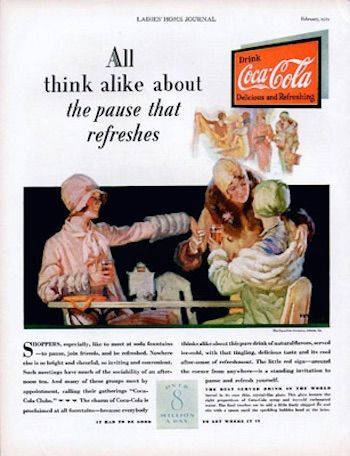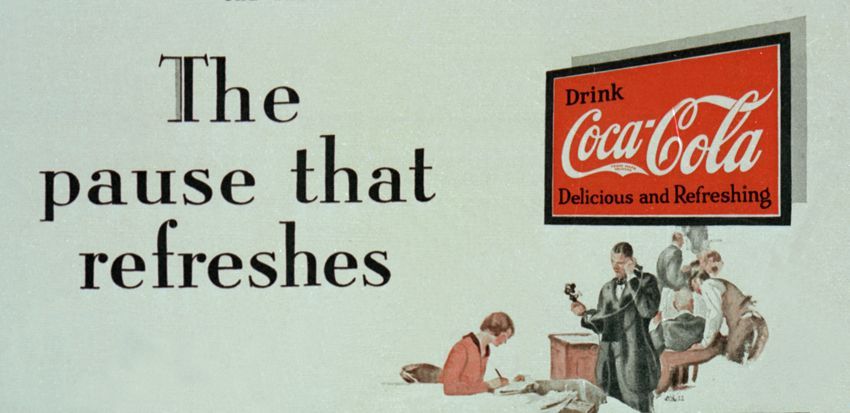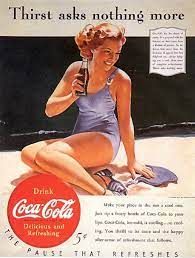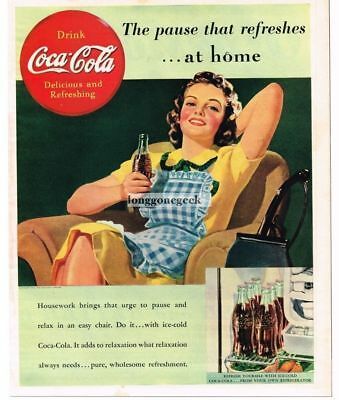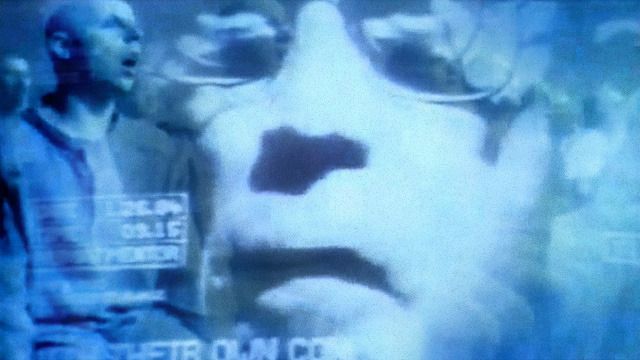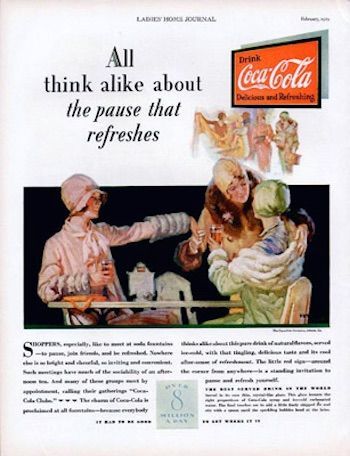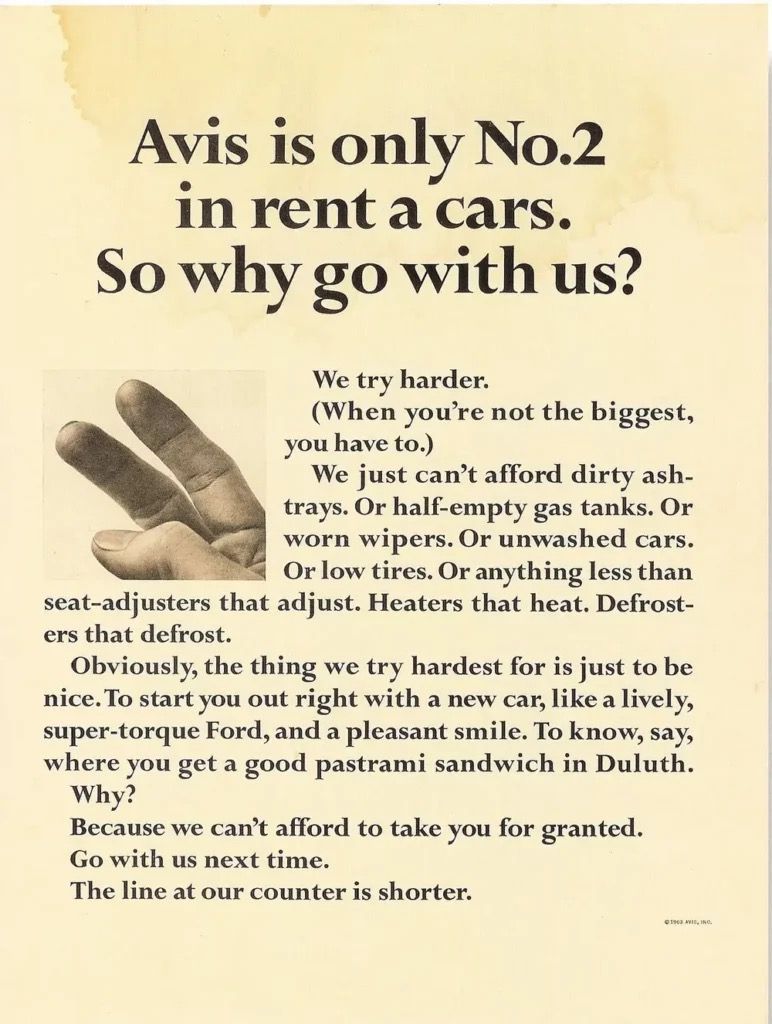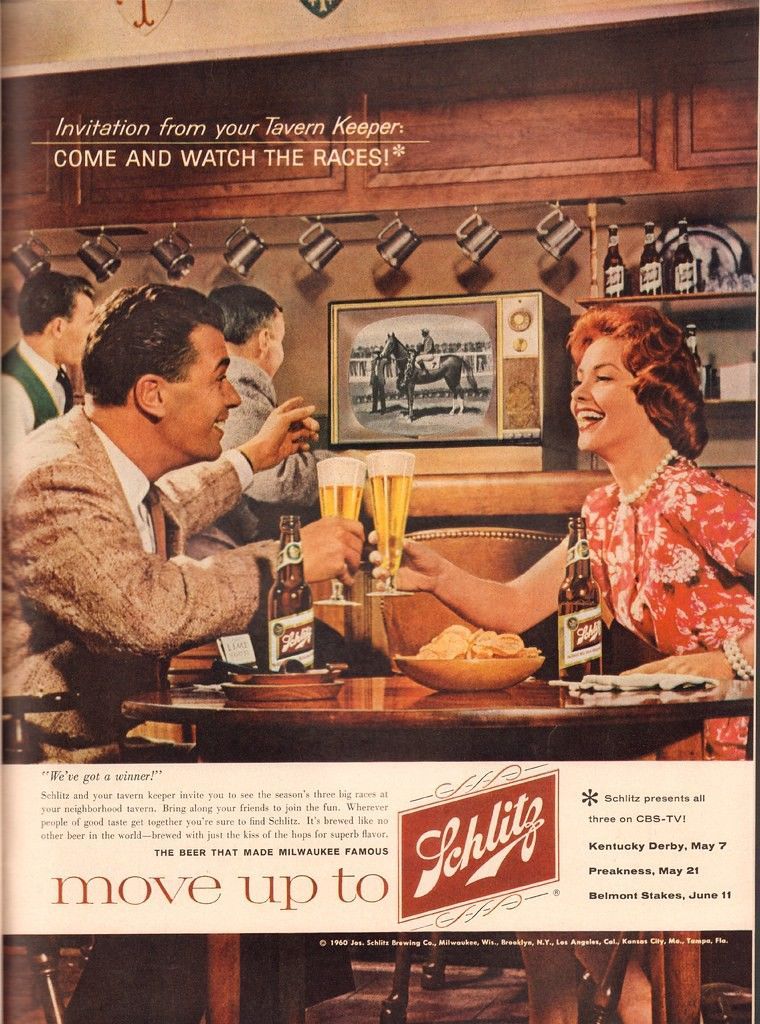Ogilvy, Chiat, Bernbach and Hopkins: the lessons of the fathers of marketing
Advertising and marketing have long been essential components of successful business strategies. Although many great people have left their mark in this field, there are some prominent figures whose name and teachings are still relevant today: Ogilvy, Chiat, Bernbach and Hopkins. In this article we will see their lessons on communication.
We at Deep Marketing want to dedicate this article to them and their lives and teachings. To thank them, in our own way, for making us feel like we are walking on the shoulders of giants every day.
Our great Master, David Ogilvy
David Ogilvy was one of the most influential figures in advertising and marketing of the 20th century. He is best known for being the founder ofOgilvy & Matherone of the largest marketing companies in the world, but has also imparted to all of us through his books a great deal of knowledge about successful advertising tactics and strategies.
Ogilvy was a highly renowned advertising executive, and is in all respects considered the father of modern advertising. Born in Surrey, England, in 1911, he attended Fettes College and Christ Church, Oxford. After college, he went to work for the Gallup Research Organization as an assistant director before joining the advertising agency Mather & Crowther of London. Note that this first experience in "statistical" work will have great effects on his thinking.
At
Mather & CrowtherOgilvy quickly rose through the ranks and developed a series of outstanding campaigns that made him famous in the advertising world. Its most famous and successful campaign was "Ogilvy's Pause That Refreshes", which lasted from 1948 to 1956 and helped make
Coca-Cola the household name it is today.
In 1949, Ogilvy founded his own agency, "Ogilvy & Mather" (later shortened to "O&M"), which he ran for the next 25 years. During this period he produced some of his most famous works, such as the iconic "Hathaway Man" advertisement, which followed a mysterious man with an eye patch (played by actor George Hayden) capable of translating charisma and class. The campaign lasted from 1952 to 1963 and was so successful that it reportedly increased sales of Hathaway shirts by 700%.
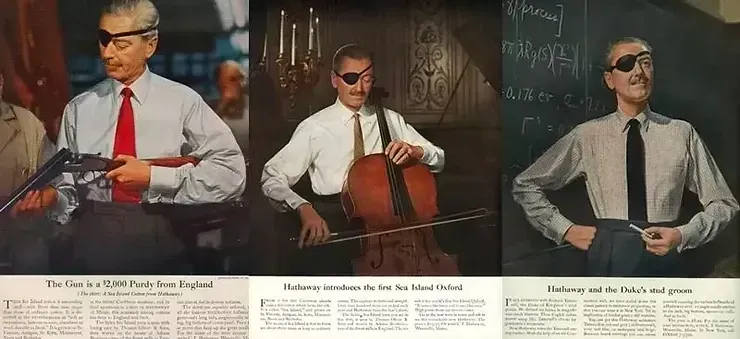
During his career Ogilvy wrote two books on advertising: confessions of an advertiser (1963) and Ogilvy on Advertising (1983). He has also written articles on marketing strategies, corporate identity and public relations, all of which are widely published in the industry. In 1965 he received a knighthood for services to British industry, becoming Sir David Ogilvy - although he refused other honors because of his American citizenship.
"Ogilvy on Advertising" is one of our favorite books on marketing!
After retiring in 1973, Ogilvy continued to provide consultancy to O&M and other agencies around the world, while contributing to many charitable causes, including the establishment of schools in India and support for < strong>medical research at Johns Hopkins University, where he established a professorship in memory of his late wife Anne Ogilvy.
David Ogilvy passed away peacefully at the age of 88 in July 1999, after suffering from Alzheimer's disease during his final years; However, before then he had lived an incredibly influential life, in which many consider him one of the greatest minds to ever grace the world of advertising, thanks to his innovative ideas on brand building, creative and market research techniques.
In this regard, a fundamental lesson that Ogilvy has repeatedly underlined is the importance of understanding what makes customers move. Their deepest desires, what in Deep Marketing we call "deep need" (it is no coincidence that our agency is inspired by Ogilvy & Mather). Ogilvy believed that by learning about consumers' motivations, advertisers could create targeted messages that were effective at reaching them. To this end, he encouraged marketers to conduct extensive research into consumer psychology and behavior. Before Ogilvy there was not enough stress on the unconscious aspects of customers.
Thank you, great Master.
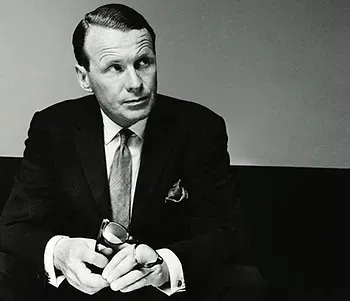
The irreverent American, Jay Chiat
Another great advertising figure is Jay Chiat. He founded one of the first major American advertising agencies, Chiat/Day. He is credited with revolutionizing the American advertising industry through his focus on creative innovation and bold ideas. His philosophy was that successful campaigns, to be effective, had to step outside the usual conventions and capture people's attention. To make this happen, he argued for combining fresh imagery, clever wordplay, humor and interesting plots that would resonate with consumers. These techniques have become commonplace in successful marketing initiatives today. His vision and leadership changed the world of advertising forever.
Jay Chiat was born in Brooklyn, New York, in 1931. He attended high school at Stuyvesant High School before enrolling at the University of North Carolina Chapel Hill, where he studied economy. After college, he served in the Army as a navigator on a B-29 bomber during World War II.
After leaving the army, Jay Chiat did his
service in a rather well-known advertising agency at the time called
Grey Advertising. In 1962 he left Gray and founded his own advertising agency, which became known as
Chiat/Day. Under Jay's leadership, Chiat/Day quickly grew to become one of the most successful advertising agencies in America, helping to pioneer many new marketing strategies, such as"event" or "guerrilla warfare" and the creation of iconic television commercials, such as the one for
Apple in 1984, strongly desired by
Steve Jobs to position the company as destructive and creative compared to IBM and its other clones.
In addition to his successes in the field of advertising, Chiat has served on the boards of directors of several major companies, including (of course) Apple Computer Inc., Columbia Pictures Industries Inc., MTV Networks Inc., National Broadcasting Company Inc., Sony Pictures Entertainment Inc. and Warner Music Group Corp. In 1990 he was inducted into the One Club Hall of Fame for creative excellence along with other industry greats such as the aforementioned David Ogilvy, George Lois, Martin Puris and Jerry Della Femina
Jay Chiat died of cancer at age 70 in 2002, but his legacy will live on forever through his contributions to both advertising and philanthropy. He is widely recognized for revolutionizing modern advertising, combining
creative flair with innovative business practices to produce lasting results for both clients and consumers, a feat that continues to be celebrated around the world today of marketing.
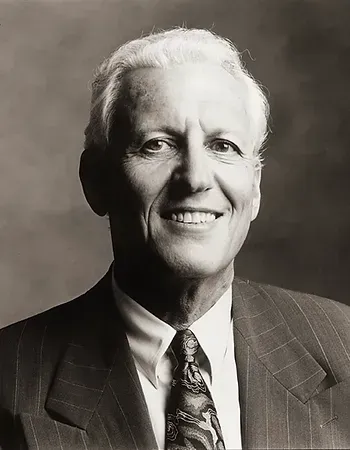
The Ethical Copywriter, Bill Bernbach
William "Bill" Bernbach was a pioneering figure in the advertising industry. His creative strategies, persuasiveness and keen eye for detail have left an indelible mark on modern advertising. Born in 1911 in New York to Austrian immigrant parents, he developed an early interest in marketing and writing while attending the City College of New York. After graduating in 1931, he found work at an advertising agency as a copywriter.
We note the red thread that connects all our heroes: a long apprenticeship. No improvisation.
He quickly earned a reputation as a talented writer and rose through the ranks of the agency, eventually becoming its creative director. In 1949, Bill Bernbach founded the Doyle Dane Bernbach (DDB) Agency with Ned Doyle and Maxwell Dane. The agency soon became one of the most successful communications companies in history thanks to its innovative approach to advertising based on an extended mix of the ideas of Ogilvy and Chiat: the creation of creative ads based on understanding of people's behavior and motivations, combined with freshness and honesty, rather than simple sales pitches.
And values, for Bernbach they were everything in communication.
This approach revolutionized the industry, earning DDB acclaim from customers and competitors. With Bill Bernbach leading the creative department, DDB created some of the most iconic campaigns in history, such as the "Think Small" by Volkswagen, which highlighted the practicality of small cars compared to larger ones; the "We Try Harder" campaign of Avis Rent-a-Car, which demonstrated commitment to customer service; and the campaign "Does She…or Doesn't She?" of Clairol Hair Color, which introduced a new wave of women's confidence through the choice of hair color.
All of us former communication students know these masterpieces by heart!
The principles embodied by Bill Bernbach have become standard practice among marketers today: think beyond selling products or services to build relationships instead; use emotions to engage the audience rather than relying only on facts; favor brevity over verbosity; emphasize images over text; design ads that are honest, transparent and that reflect human values; write simple but powerful lyrics; use humor when appropriate; building brands from storytelling rather than slogans alone.
These principles were not only new when Bill Bernbach introduced them for the first time, but they are still current among the great communication experts, despite the dramatic changes in consumer habits and expectations towards of advertising messaging and despite the mountain of improvised gurus who claim the opposite (falsified by research, you can learn more here). Bill Bernbach understood that great ads were entertaining and persuasive because they spoke directly to people's values, and he reiterated this in every single commercial he created for DDB until his retirement in 1967.
His legacy lives on through awards such as the "Bill Bernbach Award" annual American Advertising Federation Hall of Fame, which honors individuals who exemplify creativity, originality,
insight, leadership in their profession and significant contributions to society. By all accounts, both then and now, Bill Bernbach was one of the greatest minds in the history of advertising, whose genius will continue to be remembered even after his death in 1982 at the age of 71.
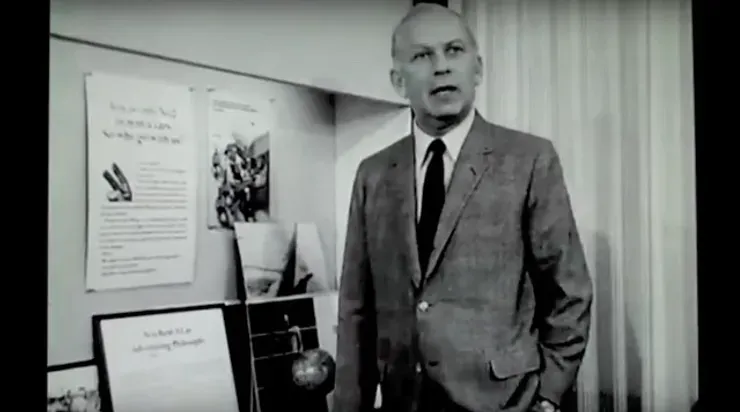
The honest seller, Claude Hopkins
Claude Hopkins was born in 1866 in Ontario, Canada. He was a pioneering figure in the field of advertising, strongly oriented towards commercial aspects and marketing, whose influence is still felt today. His career began with sales jobs at various companies, before joining BBDO as an advertising manager in 1906 to help promote Schlitz beer. During this time he refined his understanding of consumer psychology and developed an approach to advertising that focused on making tangible promises about a product's effectiveness. This style helped him create many famous advertising campaigns for numerous products during his long career.
Hopkins' early successes:
The author is best known for his book Scientific Advertisingof 1923, in which it laid out a successful advertising system that included accurate measurement of results. He argued for the need to create advertisements that focused on the practical benefits of the product rather than its intangible characteristics. His work also highlighted the importance of using data both to create effective messages and to measure their success or failure.
He firmly opposedexaggerations and false statements, instead believing that to attract customers one had to use only honest messages.
If you are wondering how it is possible that ALL the fathers of advertising underlined the importance of understatement and honesty while today the opposite is almost always taught by the great experts - who define themselves as such without proof - know that every day we fight with you to return marketing to its origins and its nobility. This is our mission.
Claude Hopkins' legacy is still evident today: many modern marketing techniques are based on what he wrote long ago. His emphasis on the power of data-driven decision making has been adopted across multiple industries, including retail, healthcare, banking and more – something he would undoubtedly be proud of! The impact of Hopkins' work can also be seen in many aspects of modern high-quality advertising, such as the use of stories as part of branding campaigns or the shying away from "hard sell" tactics, that is, hard and insistent sales.
Overall, Claude Hopkins left an impressive legacy in the world of marketing and advertising, which continues to inspire generations of professionals around the world through his clear focus on information, product benefits, storytelling,
ethical sales.
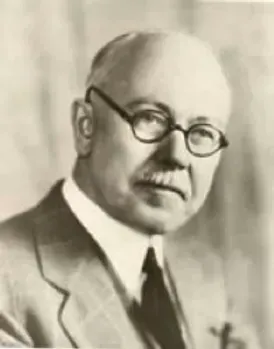
The legacy
We have told 4 extraordinary stories of exceptional men. Four human beings united by the search for excellence, value, transparency, imagination, creativity, success for their customers. Four people who love the clean part of our profession.
Four lights that illuminate the path of us at Deep Marketing every day.
Do you want to work with a serious agency that really loves marketing?
Contact us now.



